The Gouffre Berger
"First -1000 meters underground"For cavers the Gouffre Berger is like Everest ... a myth. The cave's fame stems from the fact that it is the first in the world where cavers have reached the mythical depth of -1,000 meters.
From 1954 to 1963, it was even the deepest known cave in the world. To this day, the network continues to expand with new discoveries.
The beginning of the story 1947 The Cuves de sassenage
The story begins here, with no other objective than to discover the origin of the water that comes out of the cuves de Sassenage near Grenoble. It’s an unplanned story that unfolds from surprises, hopes and success, that doesn’t stop.
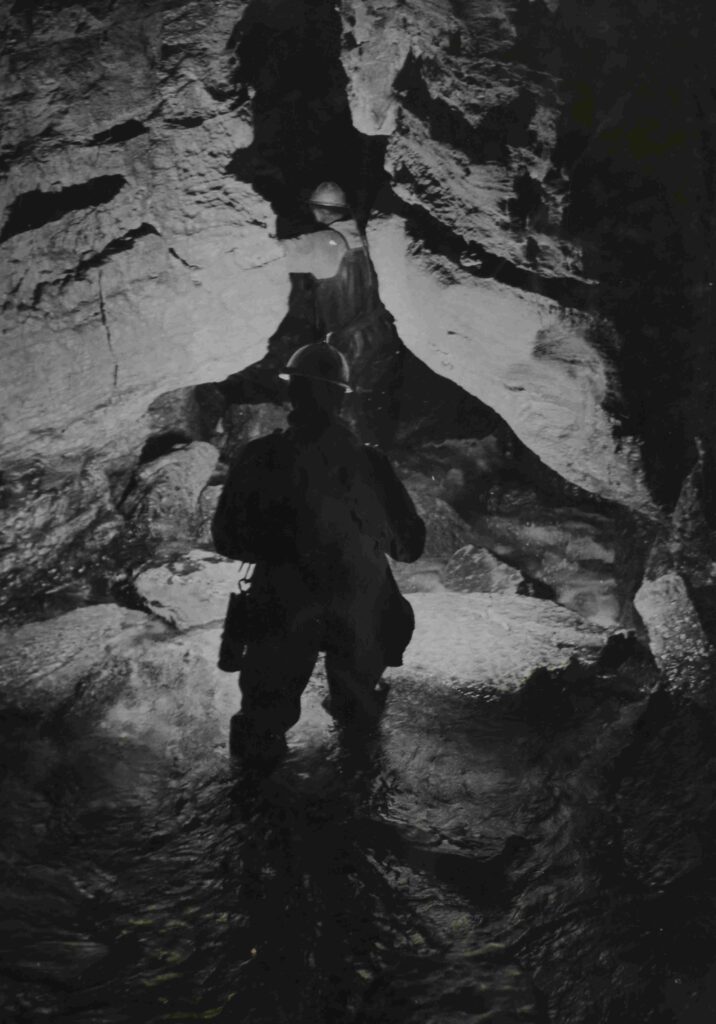
1953 - The discovery Depth reached -350 m
The first entrance, later named “Gouffre Berger”, was discovered on 24 th May, 1953 by speleologist Joseph Berger and his colleagues. In October, it was confirmed from dye-testing of the water in the cave that it did indeed connect to the Cuves de Sassenage.
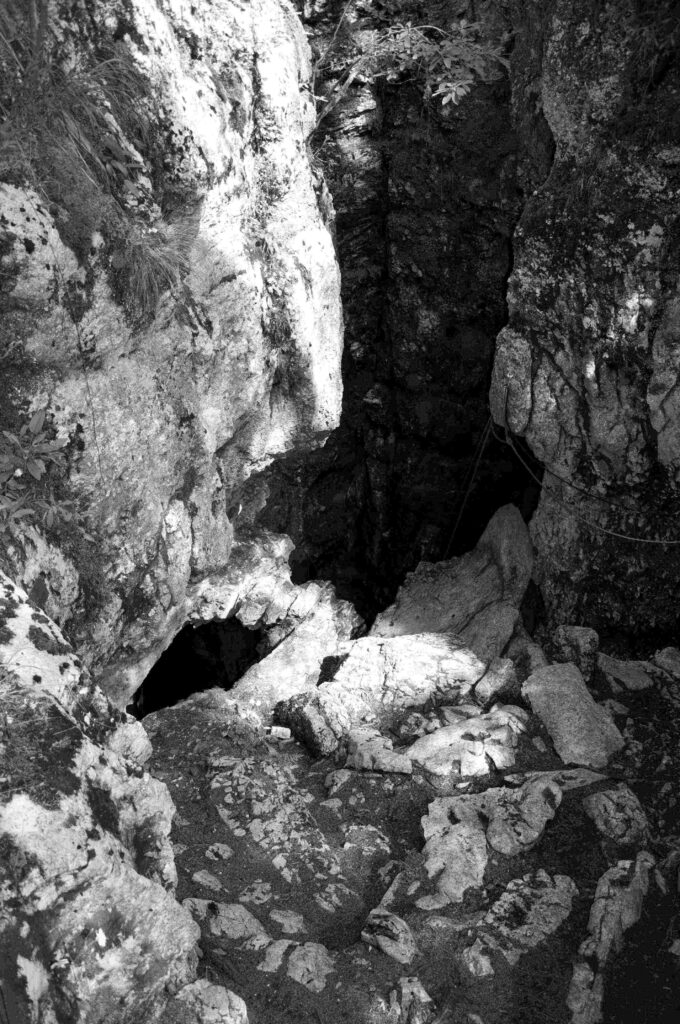
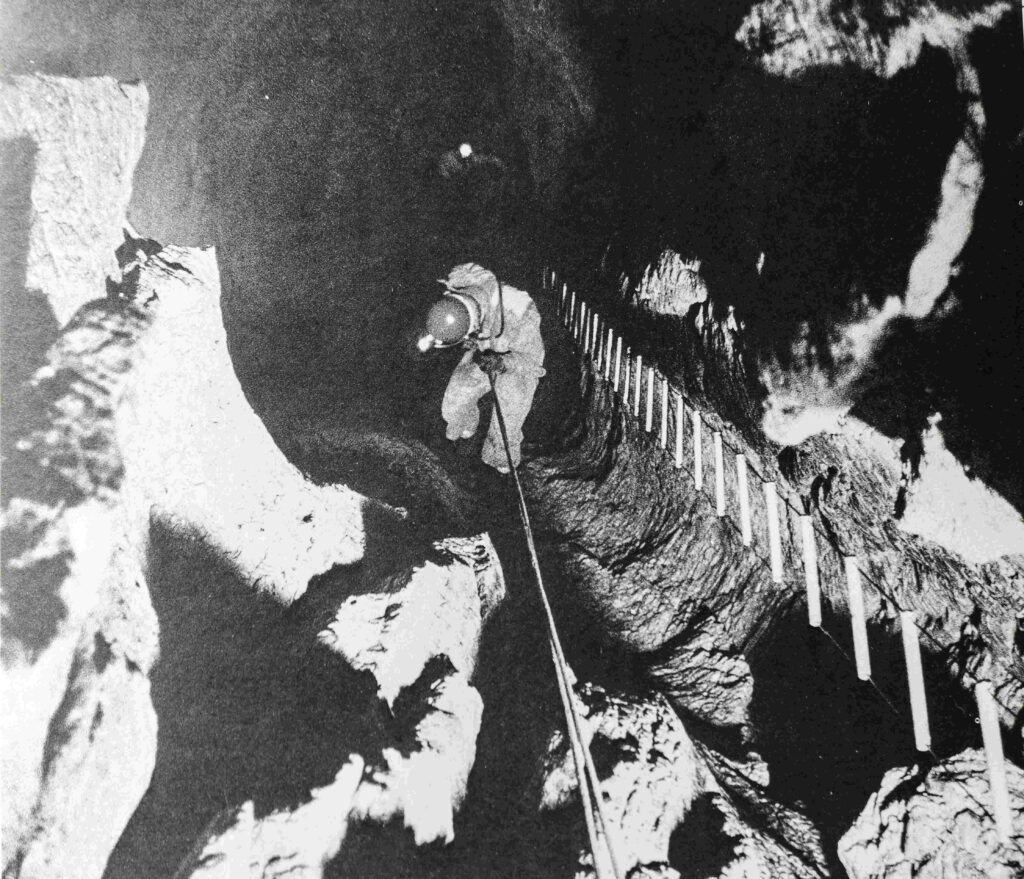
1954 - World record broken at -740 then -904 m
The team got organised and new members joined the original team. During the summer of 1954, and again in the autumn, the explorations broke the world record twice. The news was reported in numerous newspapers and magazines, where they were described as the “holiday cavers”.
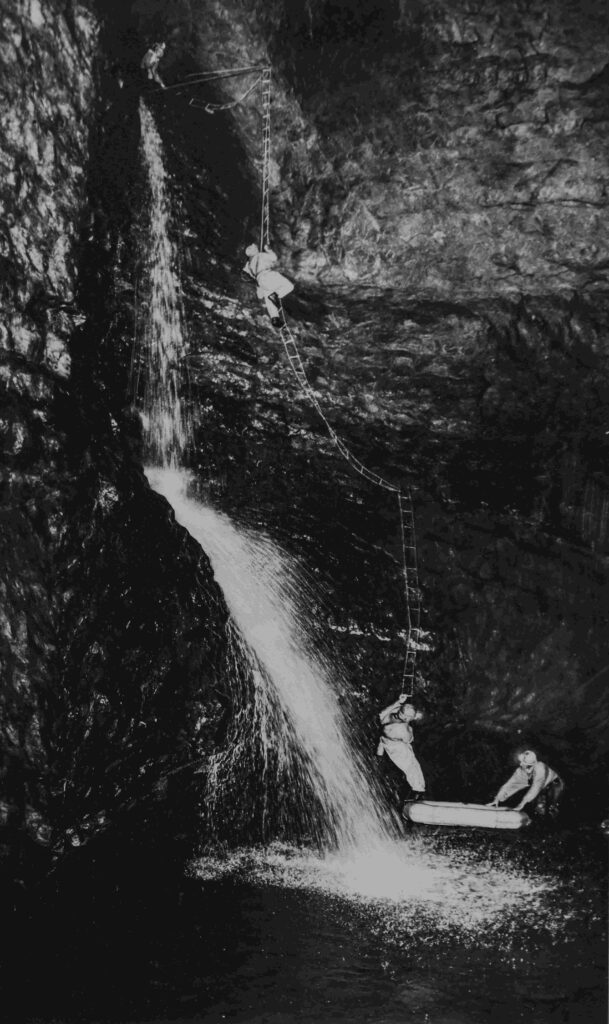
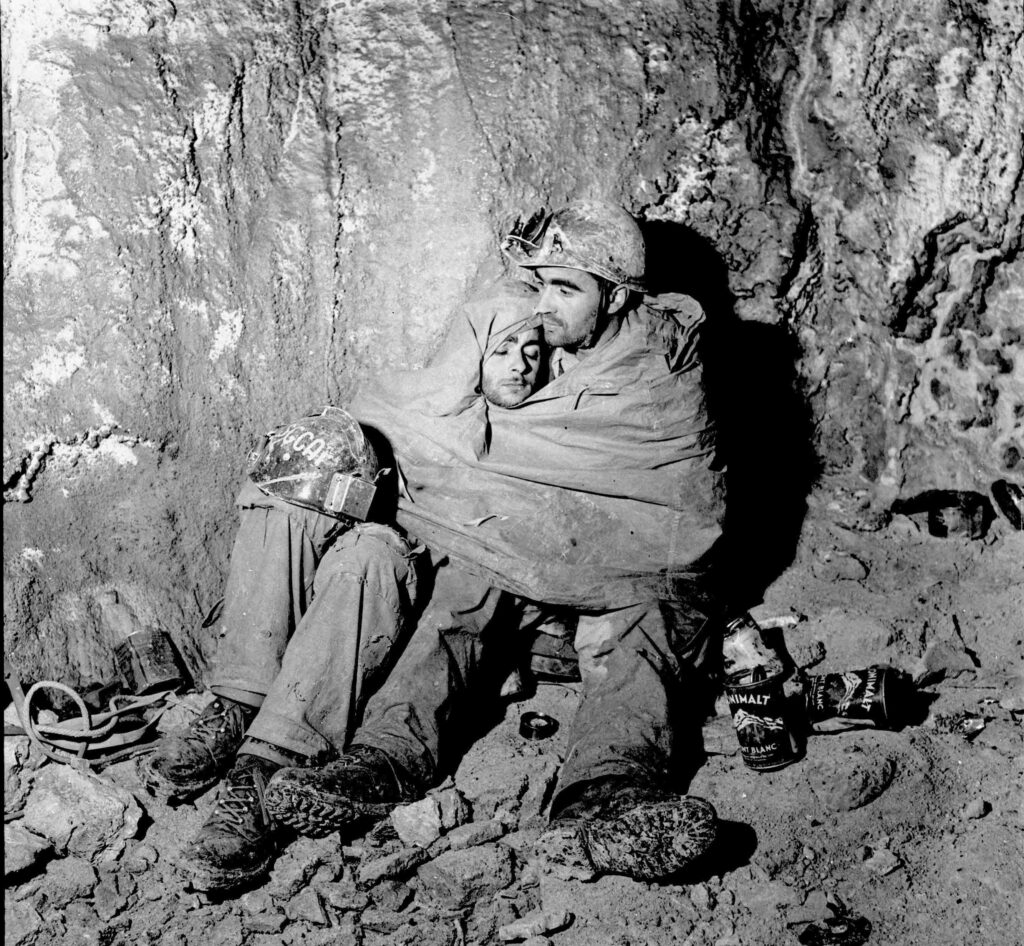
1955 - New world record set at -985 m
1955 – New world record set at -985 metres
In 1955, the team expanded again to mount a larger expedition. It lasted 218 hours (9 days) and descended to -985 meters. The expedition stopped at the hurricane shaft, overlooking the mythical -1,000 m mark.
It’s only a postponement.
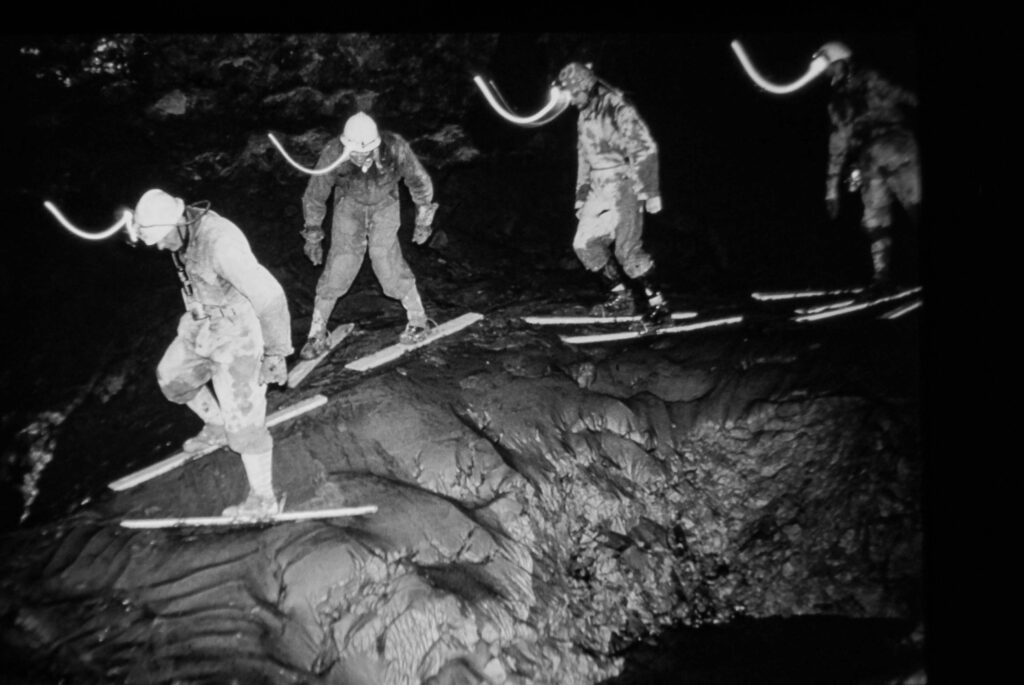
1956 - 1st minus 1000 underground World record at -1122 m
An international Himalayan-style organization was set up to “prove” the reality of records that some foreigners had doubts about. After 380 hours underground (over 15 days) for the top team, the expedition reached the terminal sump at -1,122 m.
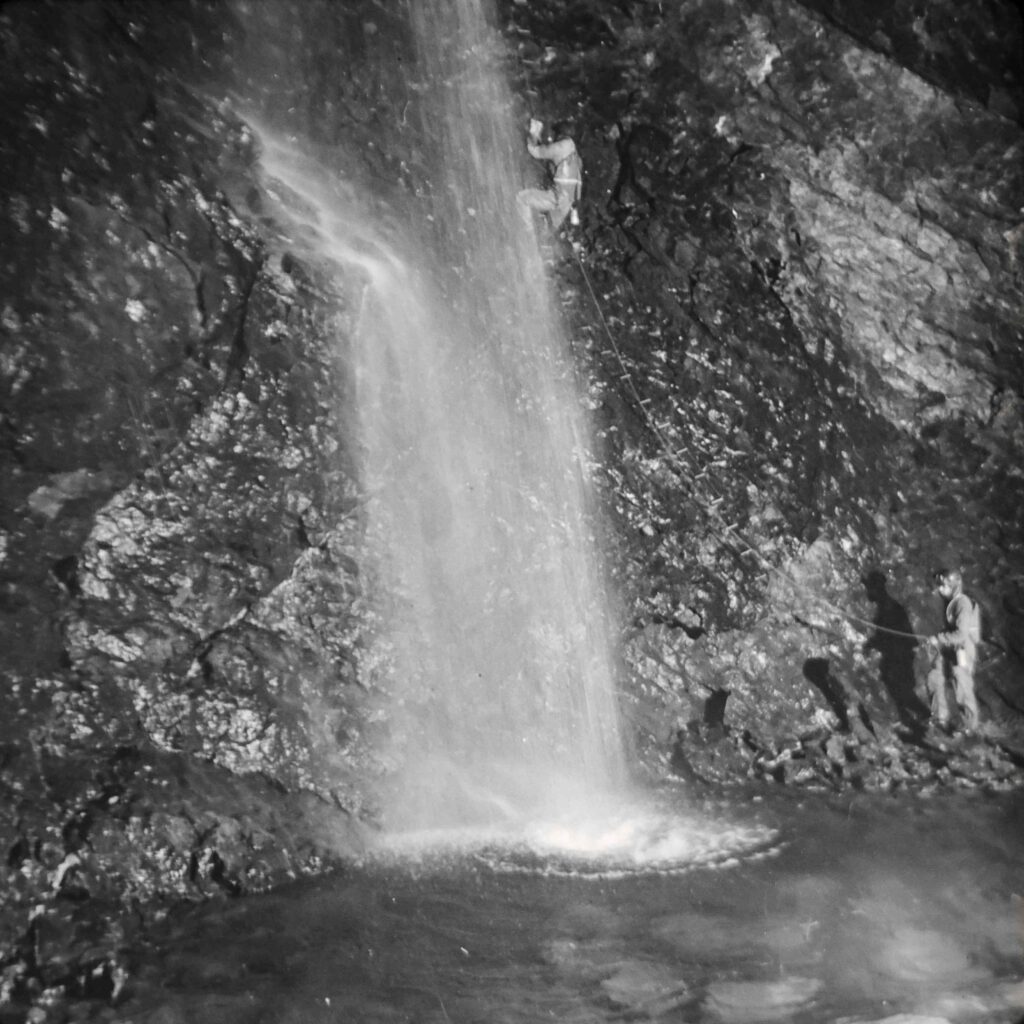
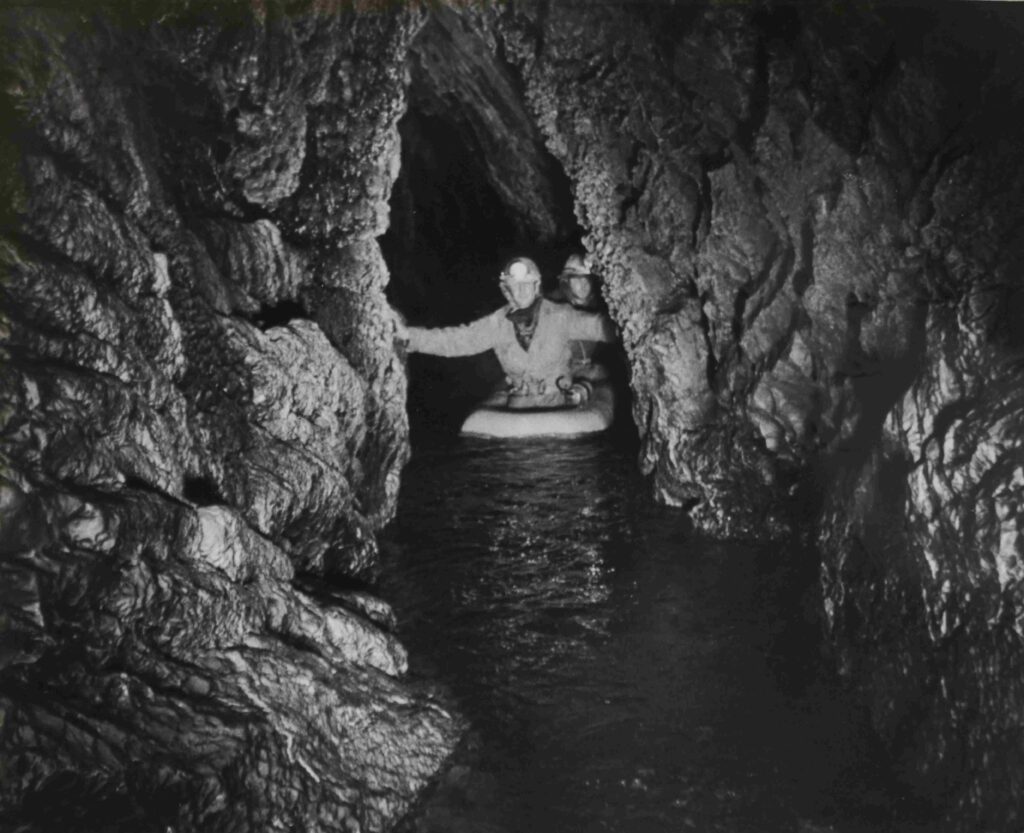
The Fromagère system The story continues
Further research led to new entries being discovered. These included “La Fromagère” from 1966 onwards, with the aim of finding a departure point higher than that of Le Berger, which would set a new record if it were joined. The cavers came up against a sump and passed by diving in 1990. An determined team finally succeeded in reaching the junction “on foot” at the end of December 2024.
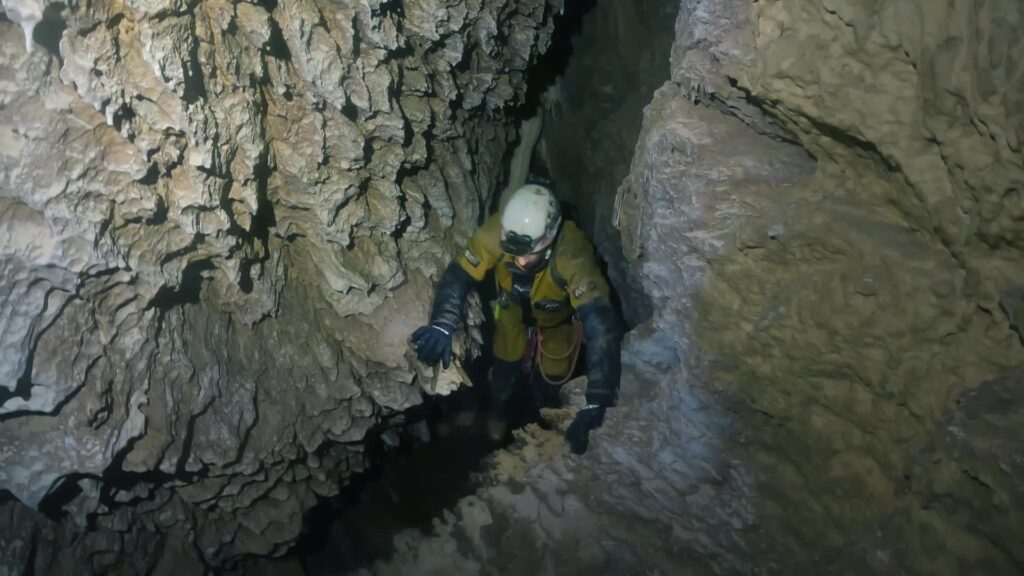
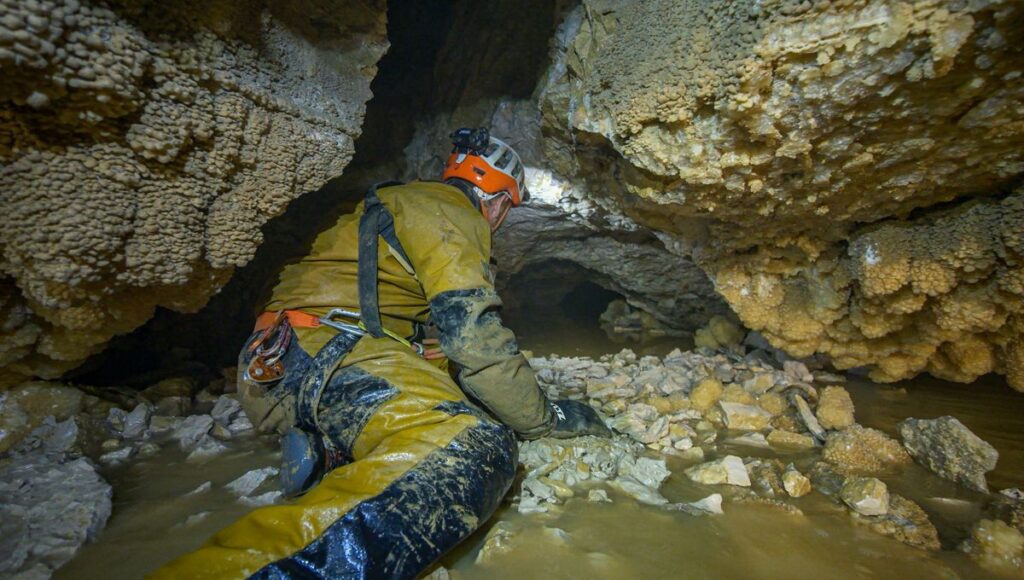
Les Cuves de Sassenage system Never finished
It all began at les cuves, but the story continues with new passages. Dive attempts to cross the sump from below were unsuccessful, and the ascent to the Saint Nizier plateau continues.
The discoveries are less than 300 metres from the plateau.
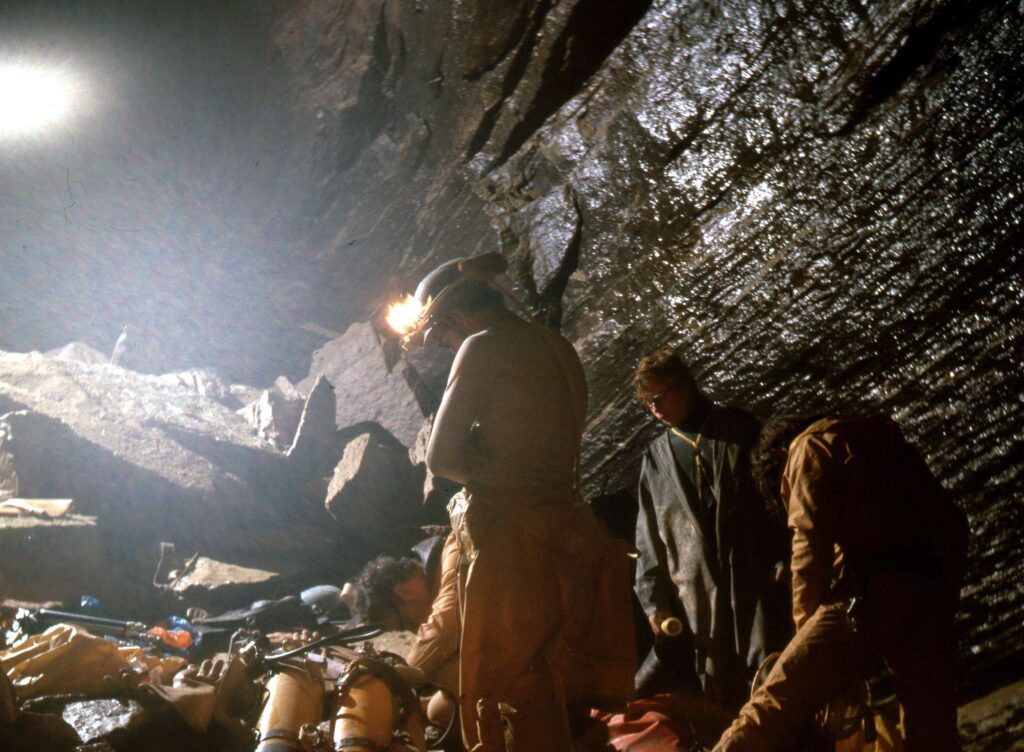
The "Etoile Sardine" sector under exploration
Since 2019, a new sector named “l’Etoile Sardine”, located at the level of the large 27-meter waterfall at -900 m, is being explored. This is an earlier fossil network that already exceeds 3.5 Km and continue.
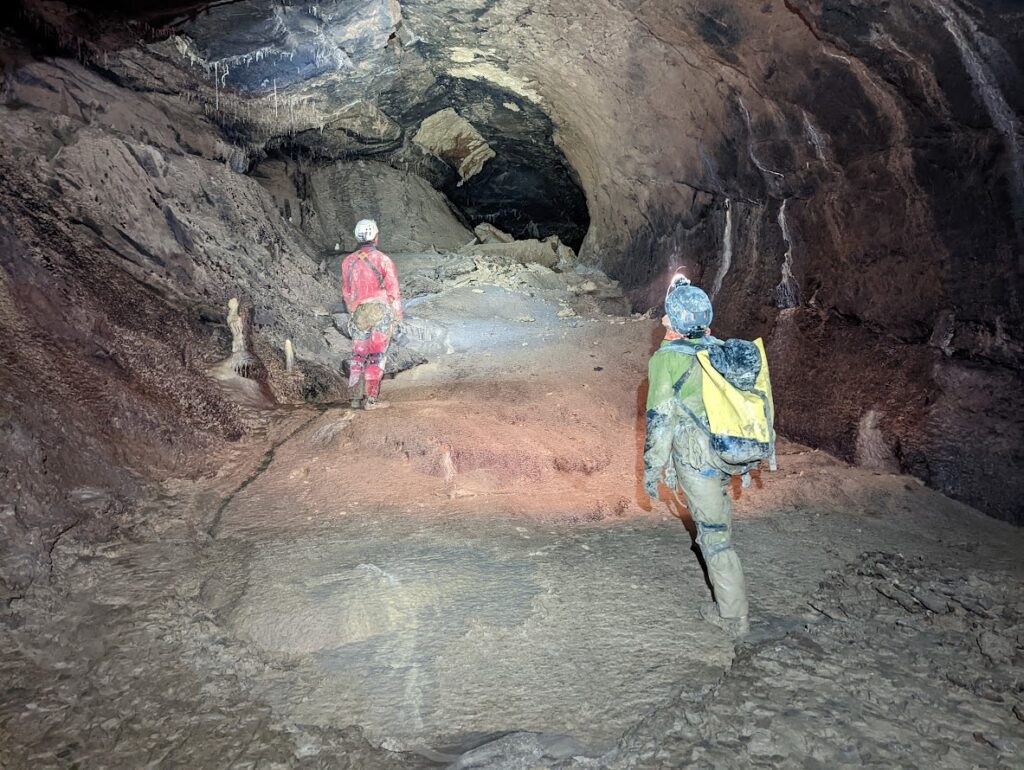
The Berger system Will the story end?
Since 1957, numerous expeditions have been made to pass successive sumps, leading to new progressions and “firsts” in secondary system. To this day, the Berger’s junction with the Cuves de Sassenage remains a dream to behold for all cavers.
The Berger is eternal.
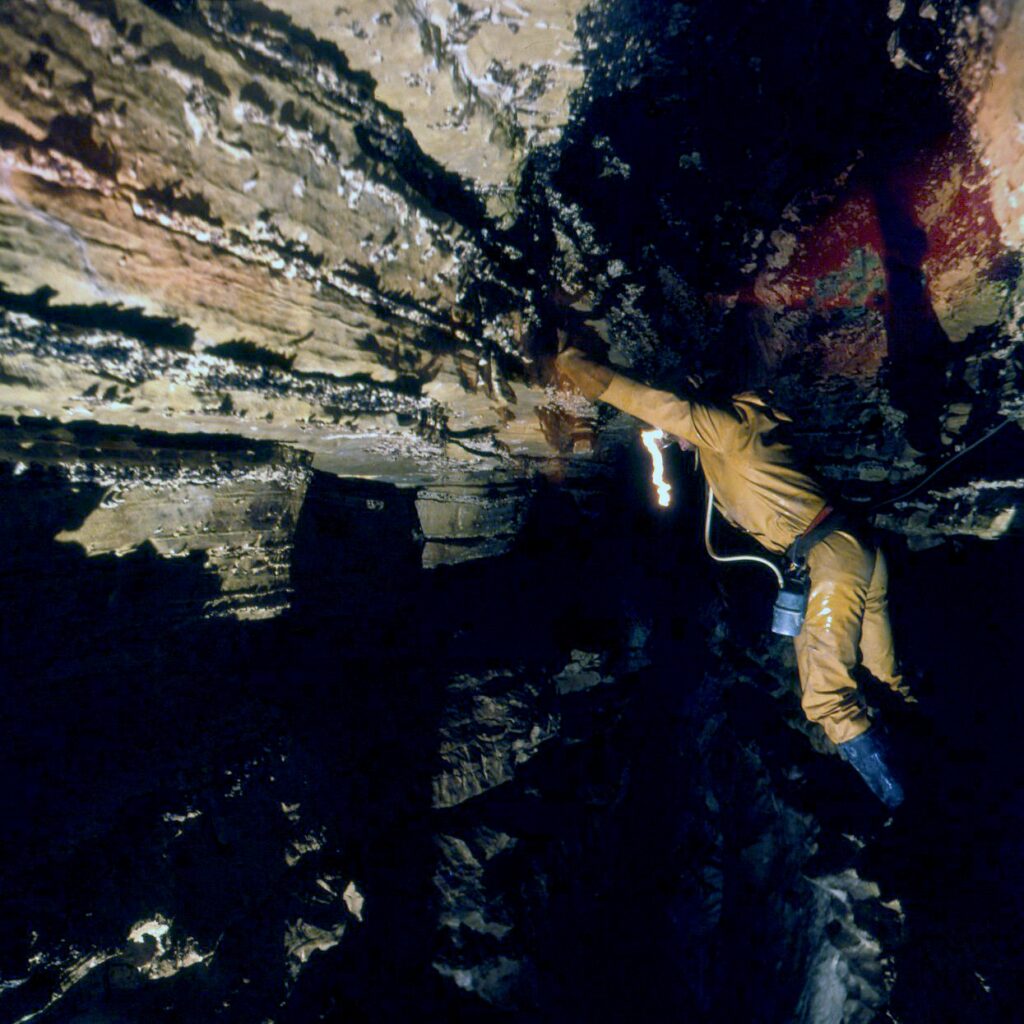
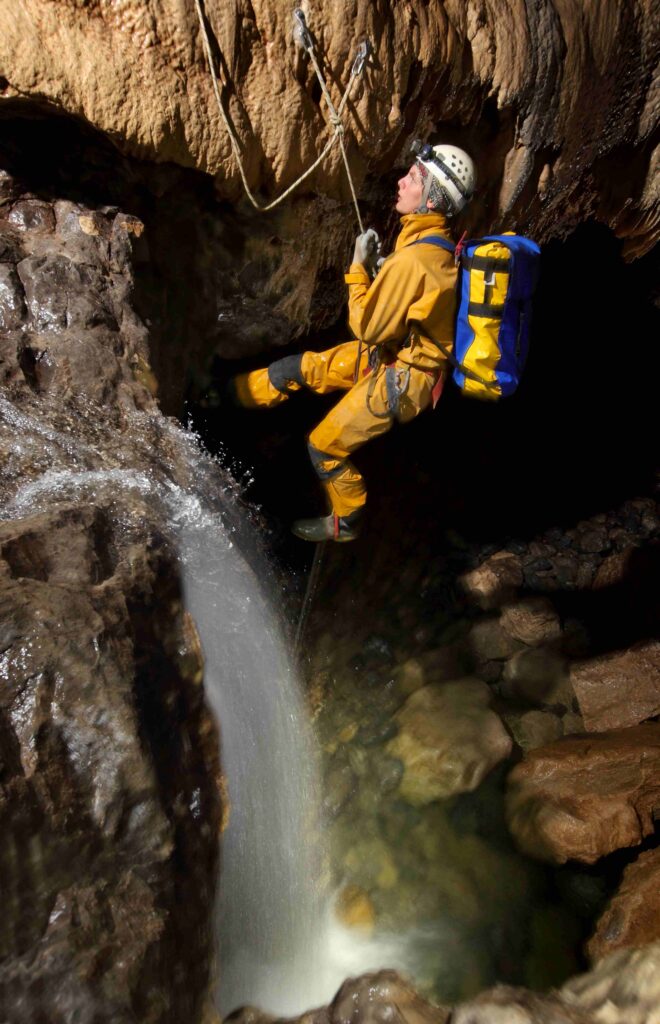
Photos : Collection Jean Lavigne, Jo Berger, Georges Marry, Daniel Lavigne, Alex Lopez, Guy Prouin, Patrice Roth, Robbie Shone